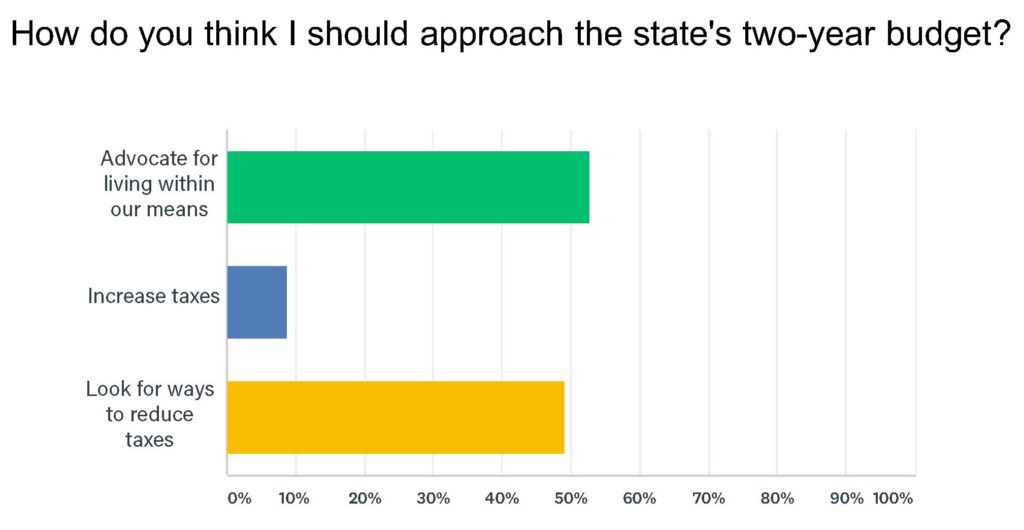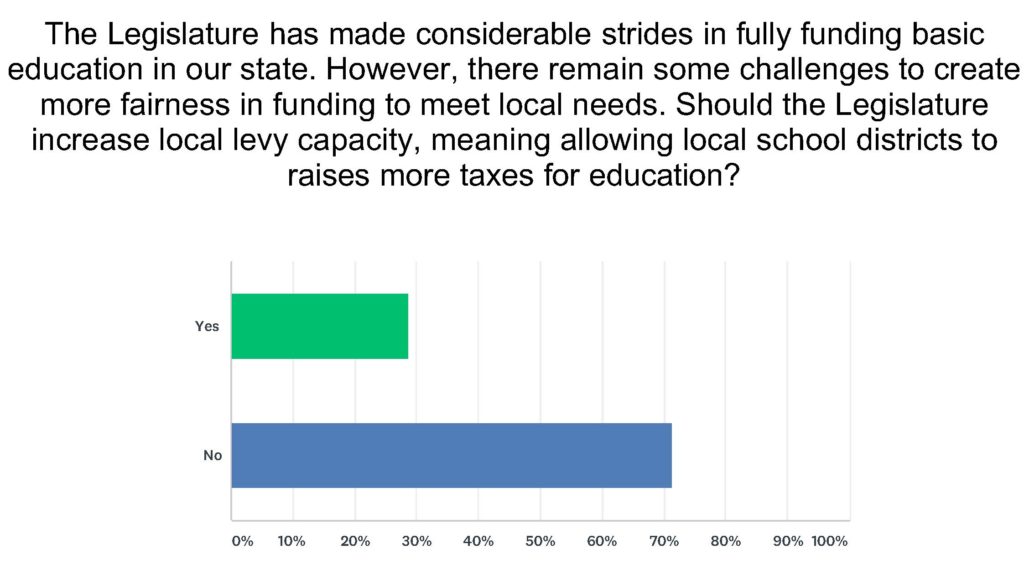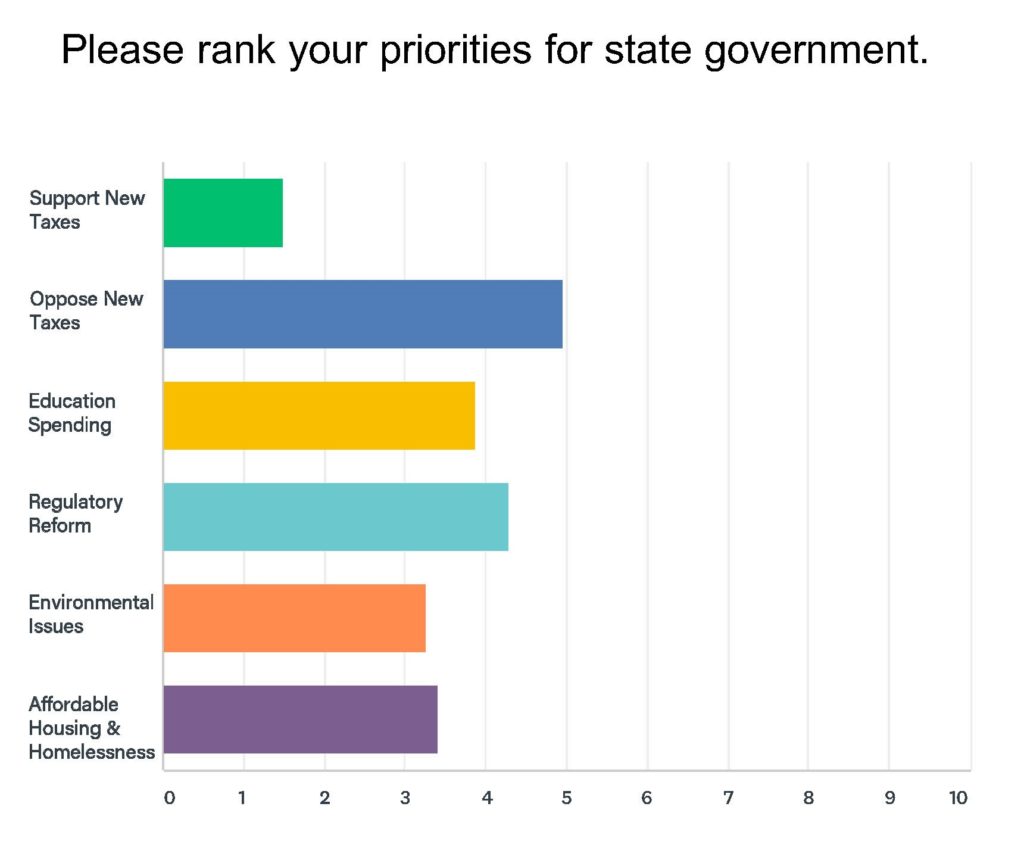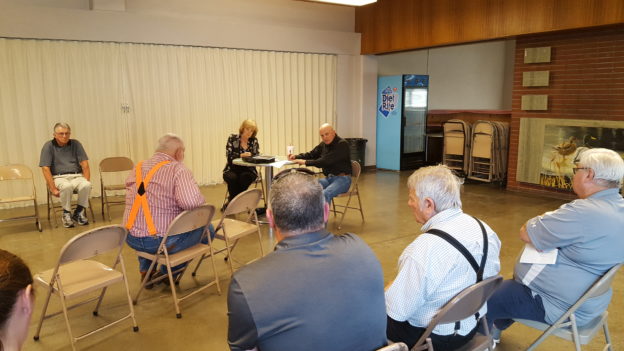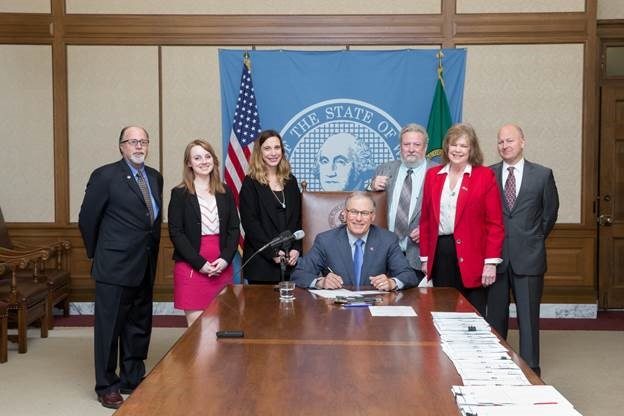|
Author Archives: Laudan

 Dec. 21, 2018 |
||||


 Please don’t hesitate to reach out to my office with any concerns or ideas you may have. I look forward to connecting with you around the district. I hope you have a Merry Christmas and Happy New Year! Sincerely,
Judy Warnick, Your 13th District State Senator |
Sen. Judy Warnick and Reps. Matt Manweller and Tom Dent will be holding informal meetings throughout Lincoln County to gain insights from constituents and discuss the recent 2018 legislative session. Below are locations and times for the tour on May 8. Lincoln Co. residents are encouraged to attend.
Odessa Library
10:00 a.m. – 11:00 a.m.
21 E 1st Ave, Odessa
Davenport Commissioner’s Office
1:00 p.m. – 2:00 p.m.
450 Logan Street, Davenport
Corner Cafe
2:30 p.m. – 3:30 p.m.
100 N W Watson St, Creston, WA
Gov. Inslee signed legislation sponsored by Sen. Judy Warnick in a ceremony Tuesday.
Senate Bill 6369 removes an exemption on veterinary inspections of animals brought into Washington state. Under current law, importers are exempt from an inspection if an animal is delivered to a feedlot, slaughter plant or livestock market within 12 hours, causing concern about food safety processes.
“My bill closes an exemption and will improve our state’s food safety,” said Warnick, R-Moses Lake. “We are bringing state law into alignment to strengthen our ability to prevent infectious diseases and ensure healthy animals are coming to our state.”
It is already unlawful to import animals into Washington without obtaining a veterinary inspection to ensure animals meet the state’s health requirements. Warnick’s bill removes an exemption that weakens the state’s ability to meet animal disease traceability goals.
“I want to be sure our state is doing everything it can to protect our food supply,” added Warnick. “Making sure we know where animals are coming from and their health is critical. We’ve had instances where those using this exemption haven’t followed the rules and that puts us all at risk.”
The bill comes at the request of the state Department of Agriculture to align state and federal animal inspection rules. The United States Department of Agriculture made a similar change in 2013.
Thursday, the governor signed Senate Bill 6278. The new law, introduced by Sen. Judy Warnick, will provide greater flexibility to the state Department of Agriculture regarding how it uses fees collected for certifying agricultural, vegetable and flower seeds.
“It is vital to our state’s agricultural industry that we have a robust seed certification program,” said Warnick, R-Moses Lake, who recently served as the chair of the Senate’s agriculture-related committee. “Giving flexibility to the state Department of Agriculture in how they use these funds will ensure quality crops by allowing the agency to take a holistic approach.”
The legislation came at the request of industry organizations.
“This law will strengthen our state’s Seed Act, which is in place to ensure consistency and uniformity of seeds coming into our state,” added Warnick. “The goal is to protect consumers and facilitate interstate commerce.
“Having flexibility over funding is critical to making that happen.”
The law goes into effect 90 days from the bill signing, on June 20.
Sen. Judy Warnick’s bill to update state law concerning agricultural fairs and youth shows was signed Tuesday by Gov. Jay Inslee. Senate Bill 6368 makes broad changes to fair funding access, flexibility of funds and administrative oversight. The new law, which received unanimous support in the Legislature, will take effect June 7.
“State laws concerning fairs and youth shows haven’t been updated in 50 years,” said Warnick, who is Republican leader on the Senate’s agriculture committee. “There have been a lot of changes in how fairs come together and what they do for communities across our state. They are an important economic-development tool for rural communities and my bill will help support those efforts far into the future.”
The updates to state law create a more equitable funding process for the 64 agricultural fairs and youth shows held across Washington. In addition, the new law condenses term lengths on the state’s fair commission, and ensures that fairs won’t lose funding as a result of a natural disaster.
“There are some quirks in state law concerning fairs,” said Warnick, R-Moses Lake. “This reform will keep fairs viable and give the state Department of Agriculture more flexibility in how it manages the fair fund.”
The state treasurer is required by law to transfer money to the fair fund, which is administered by the Department of Agriculture. That amount has dwindled in years past and permitted expenses have been limited. Under Warnick’s legislation, the fund will receive $2 million per year to support the expanded definition of fairs.

March 12, 2018 |
||
|
 Investing in our community Investing in our community
In addition to the operating budget, we also approved this year’s supplemental transportation and capital budgets. These provide needed investments in local community projects, as well as improvements to our district’s transportation system. Here are some of the transportation projects that are funded in our district:
You can view the complete list here. Projects in the supplemental capital budget include:
Click here to see a full list of projects in our district. |

It is an honor to serve as your state Senator. Please do not hesitate to reach out to my office with any questions or concerns you may have regarding your state government.

Judy Warnick,
Your State Senator
Reps. Matt Manweller, R-Ellensburg, and Tom Dent, R-Moses Lake, and I are holding an hour-long telephone town hall this evening, Monday, Feb. 19, at 6 p.m.
The program is similar to a call-in radio show in which people may call and ask questions over the telephone.
To participate, call (509) 404-3047 during the event. If you would like to ask a question during the call, you can press the star (*) key on your telephone keypad.
For more information about the telephone town hall, residents can contact my office at (360) 786-7624.
I look forward to speaking with you!

It is an honor to serve as your state Senator. Please do not hesitate to reach out to my office with any questions or concerns you may have regarding your state government.

Judy Warnick,
Your State Senator









 Greetings Friends and Neighbors,
Greetings Friends and Neighbors,
 A Legacy of Hope
A Legacy of Hope
 Your 13th District Team
Your 13th District Team
